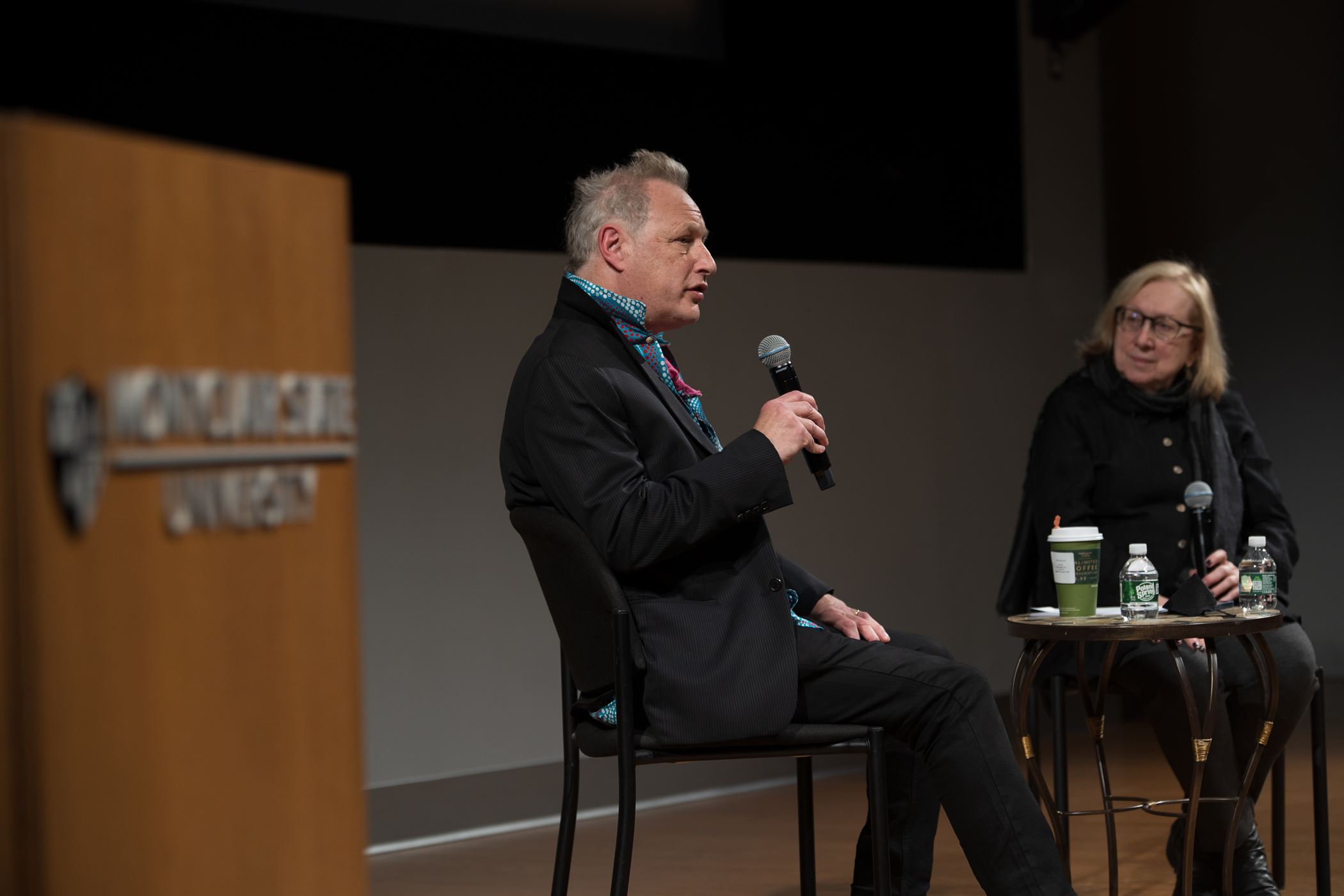Assistant professor of film Karl Nussbaum has shared his expertise teaching within the classrooms of Montclair State University for 15 years. But on March 15, he took his experimental films and story as the child of a Holocaust survivor to the screen at the School of Communication and Media’s Presentation Hall.
Open for anyone to attend, Montclair State’s Film Forum invites talented film and video professionals to present their work and speak on their artistic process. As a “one-man-band” who writes, shoots and edits projects to be displayed at specific locations, such as Germany, France and Italy, Nussbaum had plenty of wisdom to impart in his question-and-answer portions hosted by Professor Roberta Friedman.
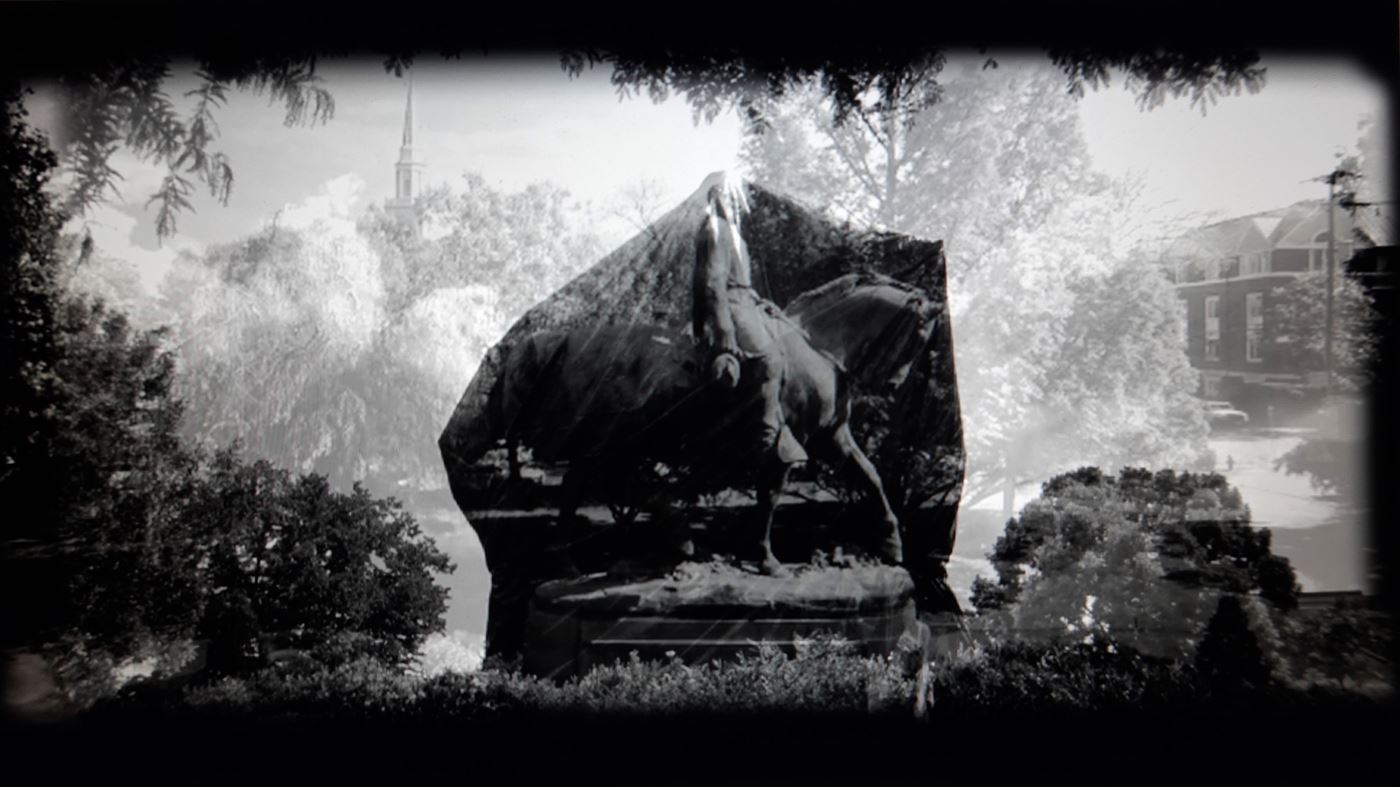
The event kicked off with a showing of Nussbaum’s “Ghost Dance for America, 1890.”
Photo courtesy of Karl Nussbaum
The event kicked off with a showing of Nussbaum’s “Ghost Dance for America, 1890,” which was originally presented at the Virginia Center for the Creative Arts. Named after a Native American Indian movement done in response to colonization, this film explores how the beginnings of our nation and the violence that occurred in the 1800s have culminated in the political climate we find ourselves in today, touching on topics such as Manifest Destiny and the Civil War as scenic images, serene music and sounds of nature filled the room.
“Ghost Dance for America, 1890” set the tone for the evening’s lineup of presentations, as Nussbaum says the unifying theme of his works is that they are all “ghost stories.”
“They were about death, the dead and ghosts of the past, about memory, time and what is left behind,” Nussbaum said. “I tell these ghost stories because my German Jewish family was murdered during the Holocaust. I am trying to remember and honor them and their lives. This has led me to think about other tragedies and the trauma, death and generations of aftermath resulting from slavery in America and the destruction of the Native Americans in our country. All these tragedies lead to generations of trauma passed down. We need to look at and explore these traumas for all our peoples to heal.”
With his father and aunt being the only ones to survive, as well as his father having been arrested several times and put into a camp for a period of time, Nussbaum translates this knowledge into his projects.
“This traumatic family background has inspired just about all my work,” Nussbaum said. “It’s something that’s always in the background and influences both my art and my world view.”
Following this theme is his film “Phantasmagoria, 1945,” presented in the castle in which German Nazi politician Joseph Goebbels and his family stayed, located in Rheydt, Germany, also the hometown of Nussbaum’s father. The project uses a variety of elements, from Goebbels’ propagandist ideas and anti-semitic cartoons to modern-day clips of Black Lives Matter protests, riots at the White House and heart-wrenching segments of children in detainment.
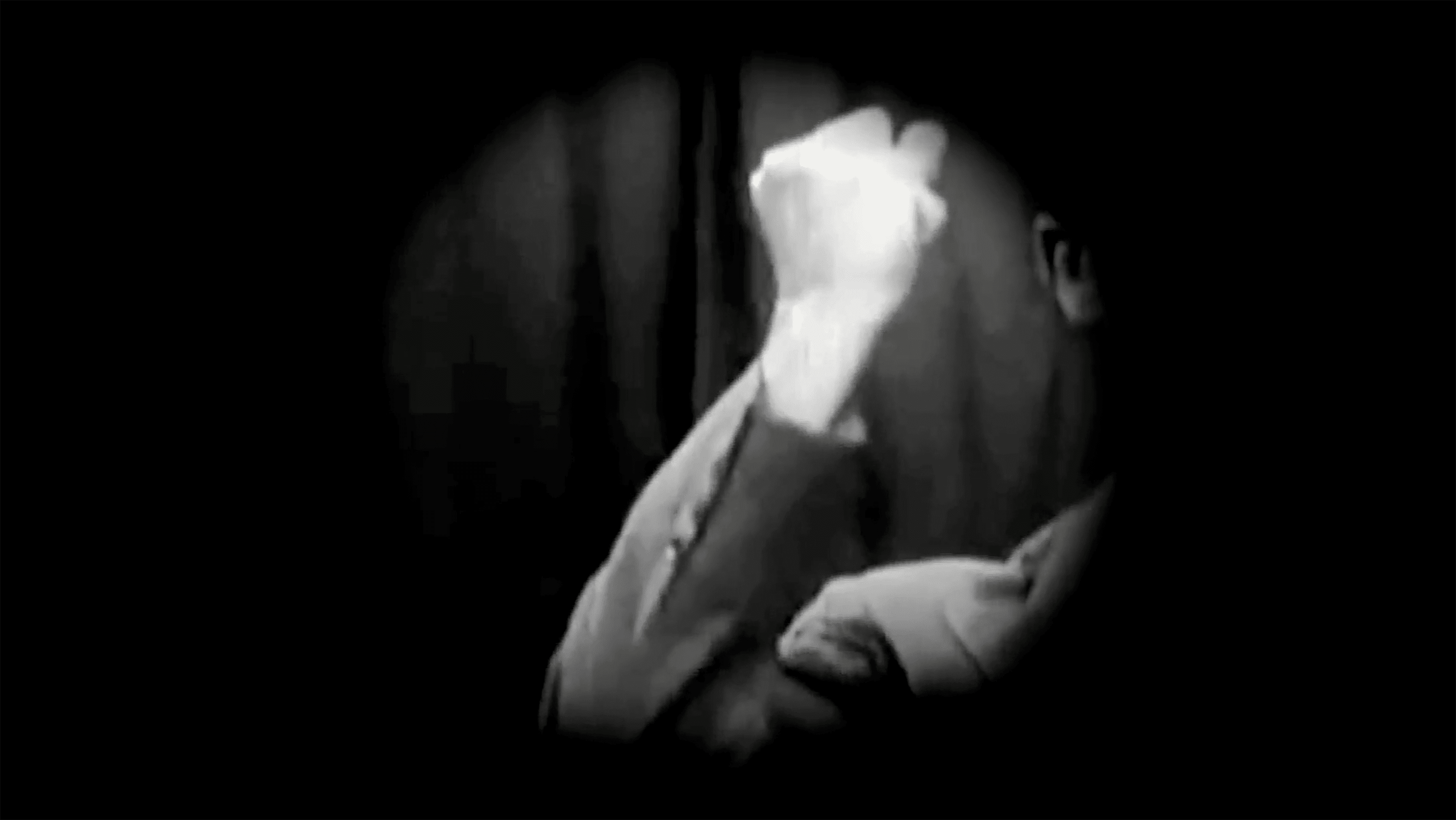
“Phantasmagoria, 1945” was presented in the castle in which German Nazi politician Joseph Goebbels and his family stayed.
Photo courtesy of Karl Nussbaum
“Ghost Dance, 1890” and “Phantasmagoria, 1945” are only two of the several films presented at the Film Forum before the event concluded with Nussbaum’s most recent work, “Psychedelic Ode to Sunshine.”
Though still drawing inspiration from his family background by paying homage to his late aunt who had survived the Holocaust, this film proves different from the others. He connected the idea of his aunt having lived as a Christian missionary in Angola, Africa to his strong interest in brightly colored African wax prints and early, upbeat African music, the two main components that define “Psychedelic Ode to Sunshine” and help set this film apart from the previous ones, according to Nussbaum.
“So when I put these two ideas together, it seemed I could create a film that was both fun but also had an emotional core and story to it,” Nussbaum said. “And then I realized this is the first time I have been able to combine the sadness and darkness of the Holocaust with the beauty and exciting, colorful energy of life in one of my films. That utter contrast is exciting and acts as a necessary sense of balance.”
The final showing and the films that preceded provided those in the audience with much to walk away with.
Charlie Martin, a sophomore filmmaking major, agreed with Nussbaum’s process of how he organically creates films and uses footage.
“I love his way of thinking when it comes to experimental films,” Martin said. “How he’s, kind of like, ‘Oh, this isn’t a mistake. This is something I can use later.’ And I like that type of thought process, and I kind of want that for myself.”
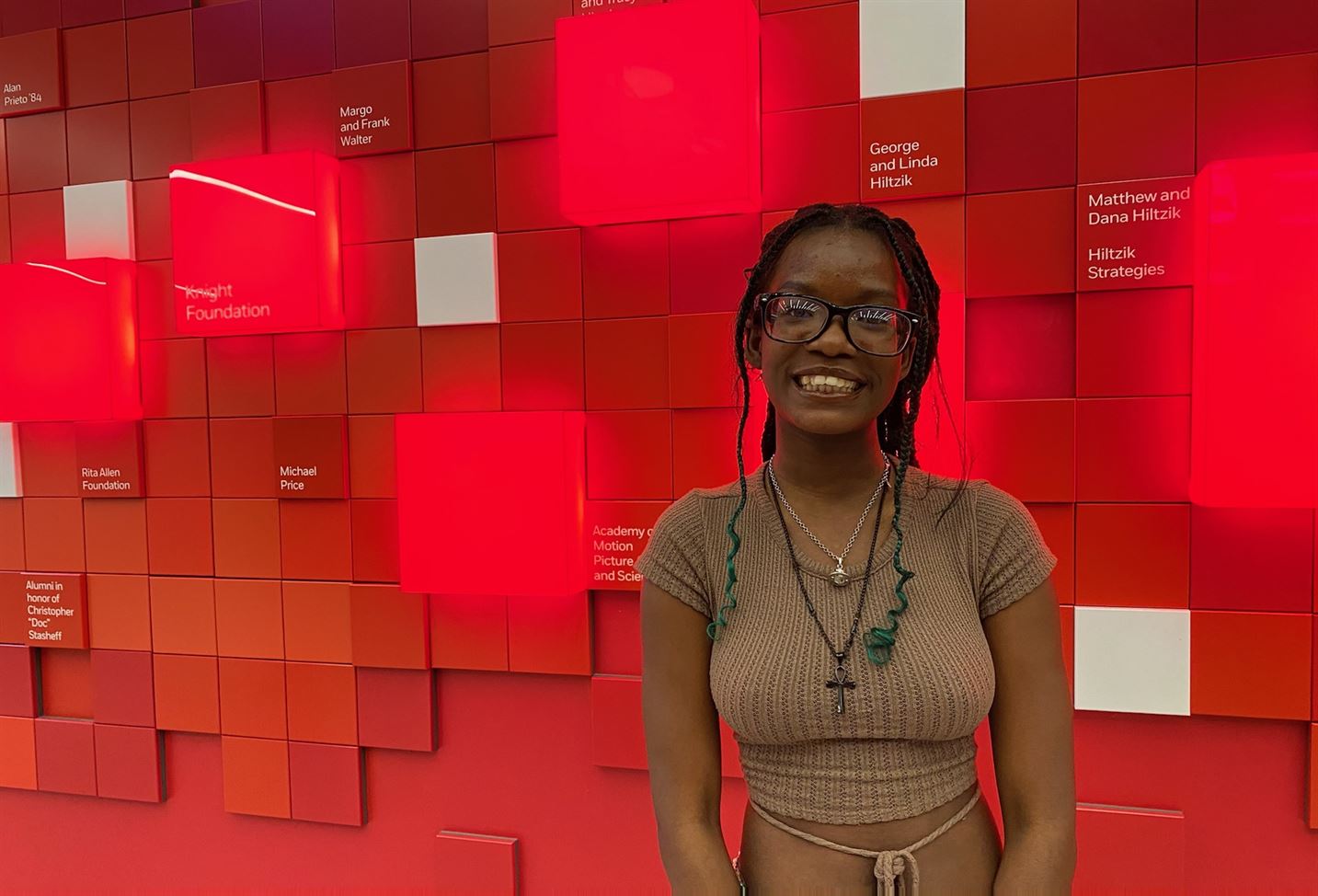
Charlie Martin, a sophomore filmmaking major, agreed with Nussbaum’s process of how he organically creates films and uses footage.
Megan Lim | The Montclarion
Katharine Flynn, a junior filmmaking major, left the presentation with a deeper interest in Nussbaum’s type of work creating installations.
“I haven’t had a lot of experience with the type of film that he does where it’s projected on walls and stuff,” Flynn said. “And now I really want to look more into that because it’s kind of cool.”
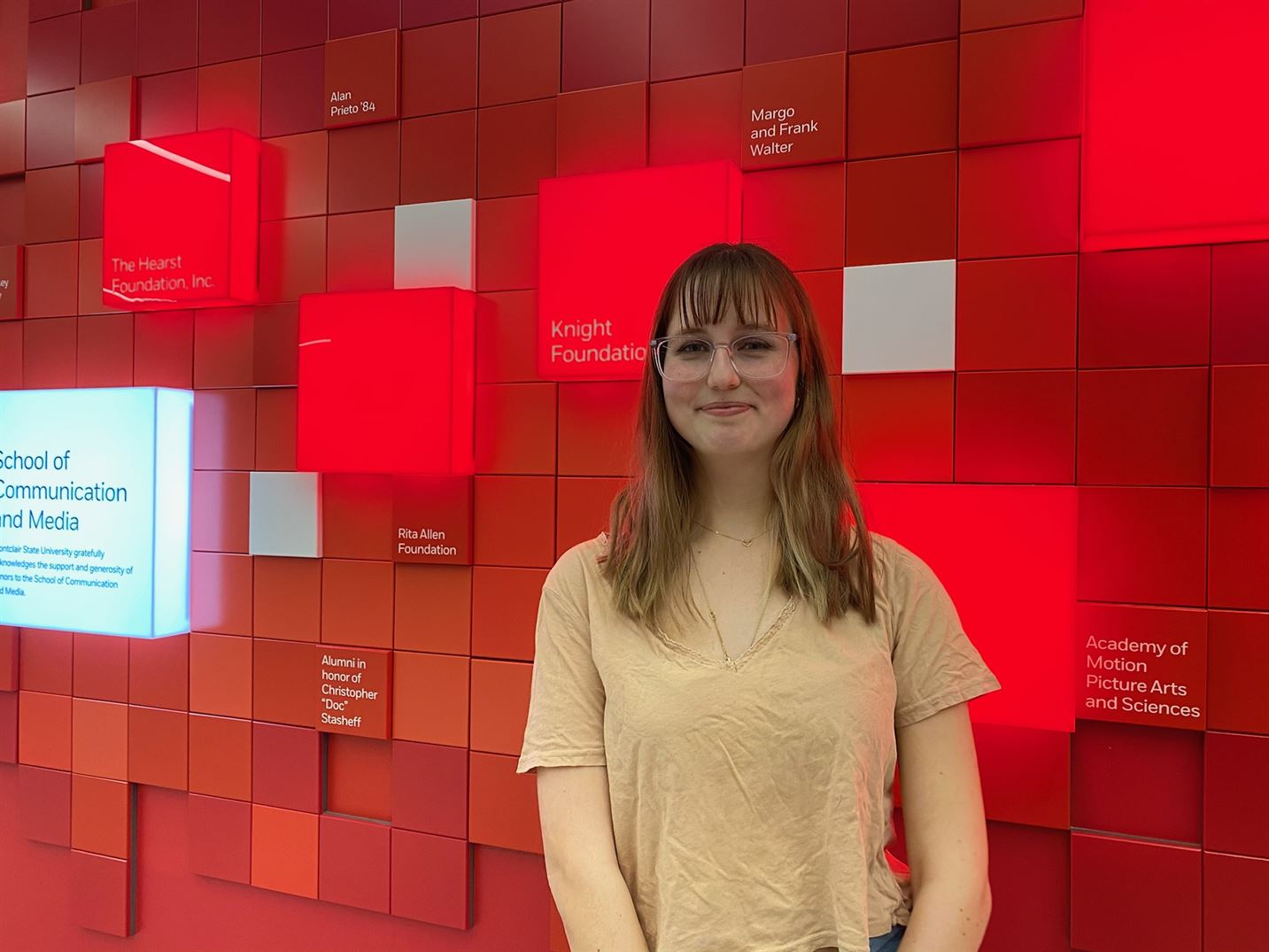
Katharine Flynn, a junior filmmaking major, left the presentation with a deeper interest in Nussbaum’s type of work.
Megan Lim | The Montclarion
Nussbaum’s visit at the Film Forum achieved what he shared his goal to be, which is to have a conversation with the audience and present his work to others so they might be affected enough to form their own thoughts and feelings.

